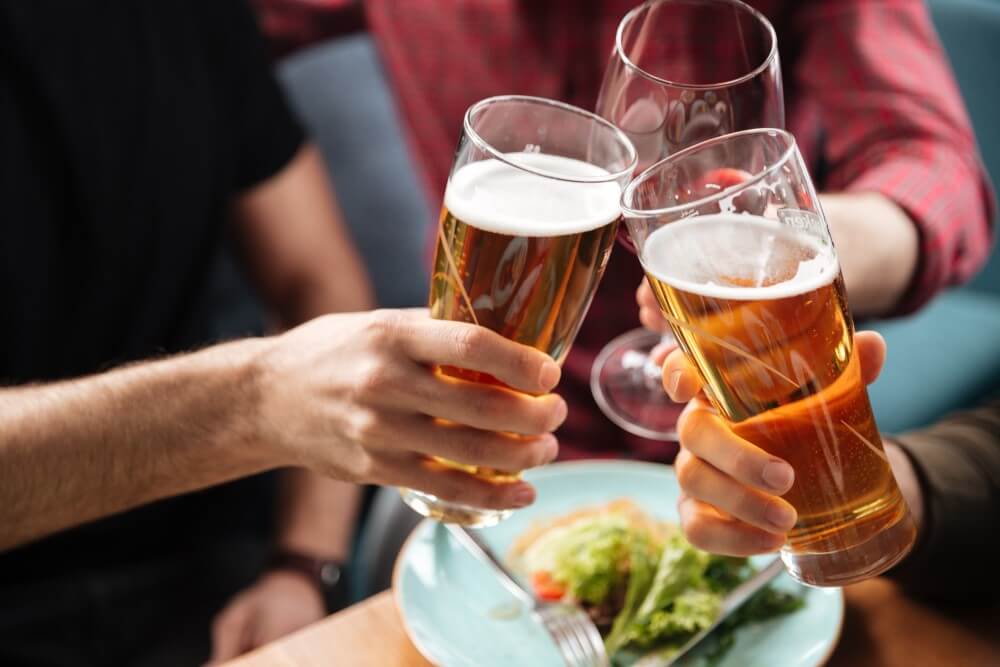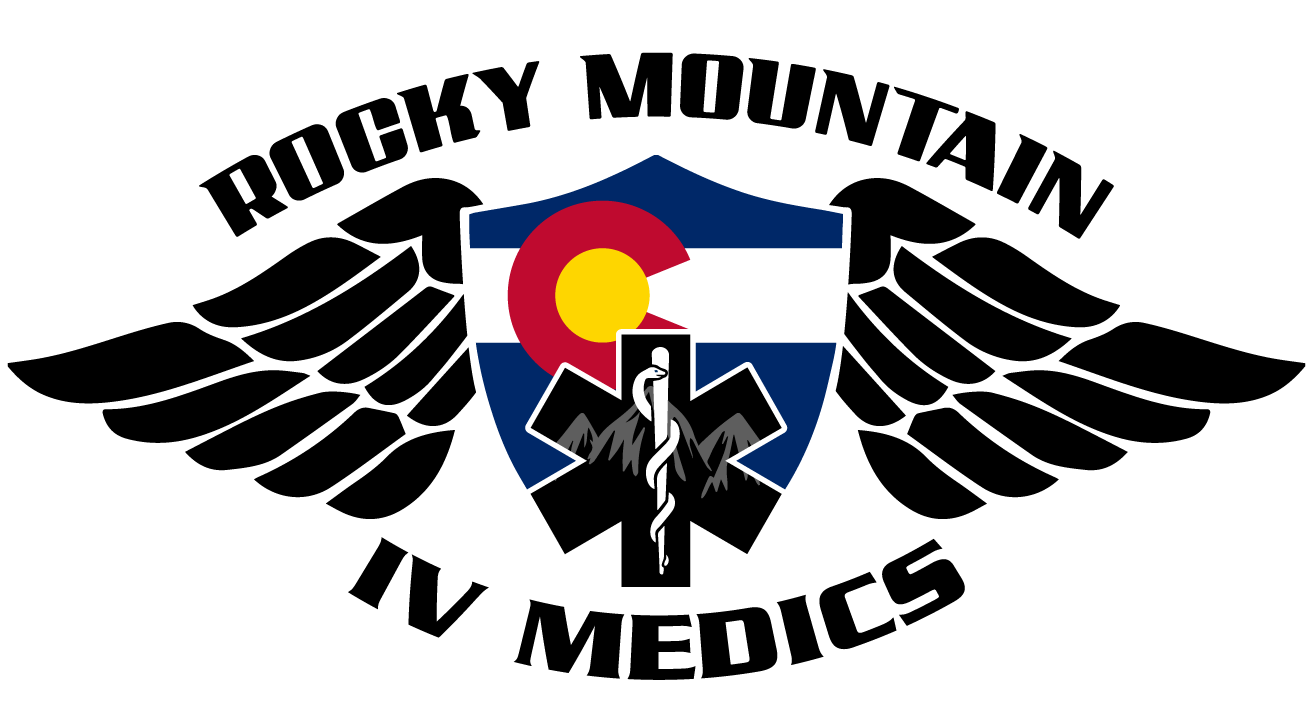Understanding Intoxication: How Many Drinks Is Too Many?

What is Hangxiety? Understanding & Managing Post-Alcohol Anxiety
March 28, 2023
Holiday Recovery: Rehydrate & Revitalize After the Festivities
March 28, 2023Understanding Intoxication: How Many Drinks Is Too Many?

Table of Contents
- How Does Alcohol Get You Drunk?
- How Many Drinks Does It Take to Get Drunk?
- Behavioral Effects of Alcohol
- What Are the Physical Effects of Alcohol?
- How to Get Rid of Hangovers After Drinking
Sipping wine with friends over dinner, drinking beer with buddies during the game, or throwing back shots to celebrate a promotion can all lead to great times and good memories. However, there’s a fine line between a fun buzz and drinking to excess. Ever wonder why alcohol makes you drunk and how many drinks it takes to get blitzed?
In this article, we’ll discuss what happens in your body when you throw back that third Cosmopolitan and the different factors that affect how drunk you get. We’ll also look at what causes hangovers and showcase liquid IVs for hangovers. (Vitamin IVs are what we do, after all.) If you’re wondering, “does liquid IVs work for hangovers,”just keep reading. We’ll recommend our best IV fluids for hangovers so you can party hard and not pay for it too dearly the next day!
How Does Alcohol Get You Drunk?
If you’ve ever wondered why a few vodka tonics can turn you into a whole new person, here’s your answer. Alcohol is created through the fermentation process when yeast turns sugars into ethyl alcohol (also known as grain alcohol). That relaxing buzz you feel after a glass or two of wine is all thanks to ethyl alcohol.
When you drink an alcoholic beverage, the alcohol is absorbed into your bloodstream via your stomach and small intestine. Alcohol molecules are small enough that they can pass through the blood-brain barrier and move into your brain.
Once in the brain, alcohol molecules bind to special receptors (called gamma-aminobutyric acid), which slows down the brain’s processing power. This is why you often start to feel relaxed after a few beers.
If you continue to drink, the concentration of alcohol in your blood will increase. A higher blood alcohol concentration (BAC) means more alcohol will bind to those receptors in your brain, depressing your central nervous system and interfering with your brain’s communication pathways. You’ll become increasingly “drunk.”

How Many Drinks Does It Take to Get Drunk?
This is the question you came here to answer, right? Unfortunately, there is no magic number of drinks that will nudge you over the line from buzzed to drunk. The number of drinks it takes for you to get drunk will depend on a number of factors. Here are the most important.
How Much You Drink
It doesn’t take a rocket scientist to know that the more alcohol you drink, the more likely you’ll get drunk. Each drink will increase your blood alcohol concentration and will increase the impact on your brain.
What You Drink
New or inexperienced drinkers may be surprised to learn that not all “drinks” are the same. Alcohol content can vary dramatically depending on what is in your Solo cup, glass, or vintage mason jar. According to the National Institute of Health, a regular beer contains roughly 5% alcohol, a typical 5-ounce glass of wine contains 12% of alcohol, and a shot (1.5 ounces) of distilled spirits is roughly 40% alcohol.
Drinking three beers vs. three kamikaze shots in an hour will have very different impacts on your drunkenness.
Time Between Drinks
Drinking three glasses of wine in one hour versus over three hours will make a difference in how you feel. That’s because when you begin drinking, your liver will start filtering alcohol out of your body. The liver can typically oxidize one unit of alcohol each hour. If you drink more alcohol than your liver can filter, your BAC will increase. The faster you drink, the drunker you’ll get.
Whether You’ve Eaten
If you’ve ever started drinking on an empty stomach, you might have been surprised by how fast you felt the effects of the alcohol. That’s because when you’ve got food in your stomach, the acid from the digestion process will start to break down the alcohol. An empty stomach will move alcohol more quickly to the small intestine, where the higher surface area will allow more alcohol to move into the bloodstream.

Body Size and Biological Sex
How alcohol affects you also has to do with who you are. Body tissues, like fat and muscle, absorb alcohol, which means that smaller individuals will get drunker more quickly than larger individuals. Men and women also metabolize alcohol differently. Biological women tend to be smaller than biological men and usually metabolize alcohol more slowly. This means a woman may get drunker when imbibing the same amount of alcohol as her male companion.
Tolerance
The body can adapt to nearly anything, including alcohol consumption. For those who drink alcohol regularly, their brain may increase the number of GABA (gamma-aminobutyric acid) receptors, which means they’ll have to drink more to feel the effects of alcohol.
Medications
Certain medications can change the way the body absorbs or interacts with alcohol. It’s always a good idea to talk to your doctor if you have questions about drinking while taking any medication.
Behavioral Effects of Alcohol
Why is alcohol so popular in American society? Roughly 65% of US adults 21 and older report drinking, with the average consumption of this group 4 drinks a week. The answer is that alcohol can make us feel good.
The behavioral effects of alcohol include
- Relaxation
- Feelings of happiness
- Fewer inhibitions
Of course, these behaviors can become more extreme the more you drink. Those who are drunk may become belligerent, confused, or even aggressive.
What Are the Physical Effects of Alcohol?
Alcohol slows down the processing power of your brain, which is why you can suddenly feel clumsy after a few drinks or have trouble speaking. Physical effects include:
- Slow reaction times
- Loss of motor control
- Slurred speech
- Confusion
- Dizziness
- Nausea and vomiting
How to Get Rid of Hangovers After Drinking
An epic night of celebration can be wonderful at the time, but you often have to pay the price in the form of a hangover. You know the symptoms of a hangover. Your head is pounding. Your mouth is dry as cotton. You can barely drag yourself out of bed. Trying to concentrate at work is just not going to happen.
Drinking doesn’t just impact your brain, and hangovers are thought to be caused by multiple other impacts of alcohol, including:
- Dehydration
- Inflammation
- Low blood sugar
- Stomach irritation
- Expanded blood vessels
- Sleep disturbances
The best cure for a hangover is simply time. However, you can speed up the healing process. At Rocky Mountain IV, we offer liquid IVs for hangovers. If you’re looking for an IV for a hangovernear you, we recommend our Myers’ Cocktail or Ultimate Myers’ Cocktail. These IV vitamin infusions provide fast rehydration, electrolytes, and a heavy dose of vitamins and antioxidants to get you back on your feet.
Relieve Your Hangover With IV Therapy
Do you need even more hangover relief after a night on the town? Then try The Exorcism, which is designed for rapid rehydration for hangovers and vomiting. Does liquid IV work for hangovers? Our customers rave about our intravenous hangover formulas. That’s why they keep coming back to us time and time again.
When it comes to how many drinks it takes to get drunk, the answer will depend on your body type, whether you’ve eaten, what you’re drinking, and how fast you’re slinging back drinks. With experience, you will likely start to get a sense of how different types of drinks affect you. As always, it’s a smart idea to get a lift from a designated driver if you’re drinking outside of your home.
No matter how many drinks it takes to get you drunk, we believe we offer the best IV fluid for hangovers. Ready to party? Schedule a mobile IV treatment with Rocky Mountain IV Medics today.


